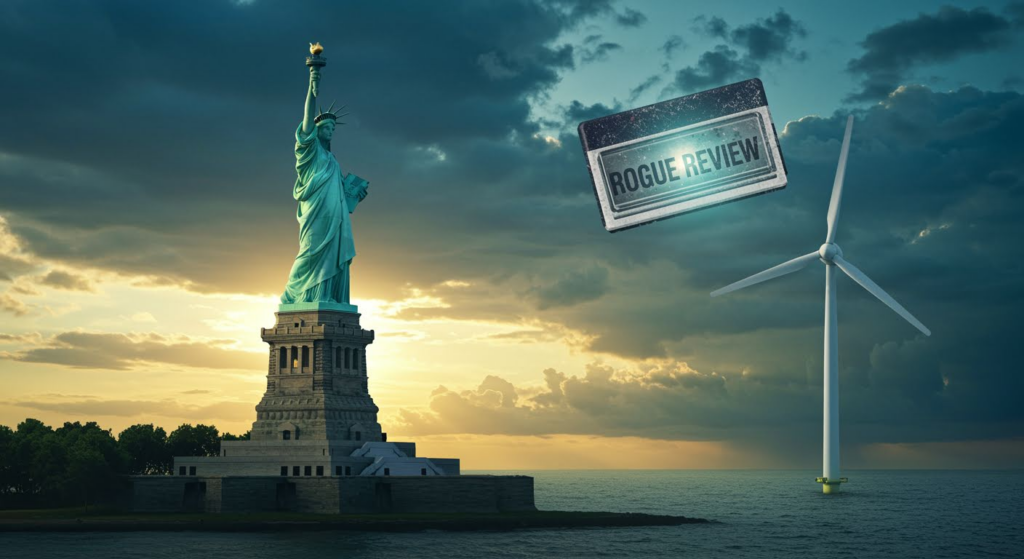
US Climate Policy: US as Rogue State in Climate Science Now
Trump Administration’s Executive Order: Challenging the US as Rogue State in Climate Policy
In a move that’s raising eyebrows worldwide, the Trump administration’s April 2025 executive order is positioning the US as rogue state in climate policy by directly targeting state-level environmental efforts. This order, titled “Protecting American Energy From State Overreach,” could undermine years of progress on climate action, sparking intense debates about federal versus state powers. Have you ever wondered how one decision could shift a nation’s role on the global stage?
Signed on April 8, 2025, this directive challenges state laws designed to combat greenhouse gas emissions and promote environmental justice, arguing they hinder American energy dominance. Critics see this as the US embracing a rogue state in climate policy stance, potentially isolating the country from international agreements. Meanwhile, supporters claim it’s about protecting economic interests, but the ripple effects are already felt in communities relying on clean energy jobs.
What the Order Specifically Targets
The executive order demands a thorough review of state and local policies that touch on climate change, including regulations on carbon emissions and ESG initiatives. By instructing the U.S. Attorney General to scrutinize these measures, it’s clear this is an attempt to redefine the US as rogue state in climate policy on the world stage. For instance, imagine a state like California, which has led the charge on emissions caps, suddenly facing federal pushback—it’s a scenario that’s making headlines and headlines alone.
This includes programs aimed at reducing greenhouse gas emissions, enforcing environmental justice, and even carbon taxes that fund clean projects. The Attorney General must deliver a report by early June, outlining ways to block these state efforts, which could lead to legal battles. In practical terms, this might mean higher energy costs for families, but it’s also about whether the US as rogue state in climate policy will stick or evolve.
States Facing the Backlash
Particular states are in the spotlight, with California’s cap-and-trade system called out for what the administration deems “impossible caps.” This criticism paints the US as rogue state in climate policy by questioning the legality of state actions that price carbon and support renewable energy. New York and Vermont, with their own emissions programs, are also under fire, accused of discriminating against out-of-state energy producers.
These policies, the order argues, violate constitutional norms and drive up costs for everyday Americans. But here’s a thought: What if these state initiatives are actually fostering innovation, like the solar farms popping up across the West? This conflict highlights how the US as rogue state in climate policy could disrupt the balance between local ingenuity and federal control.
The U.S. Climate Alliance’s Defiant Stand
In response, the U.S. Climate Alliance, a group of 24 governors, is pushing back against what they see as the US becoming a rogue state in climate policy. Representing over half of the U.S. population, they’re vowing to uphold their commitments to cut emissions, no matter what Washington decides. Leaders like New York Governor Kathy Hochul have made it clear: states won’t back down from protecting clean air and water.
This bipartisan coalition emphasizes their constitutional rights, turning the narrative on its head by showing that the US as rogue state in climate policy might just be a federal overreach. For readers in these states, this could mean continued investments in clean jobs and tech, even amid uncertainty. It’s a real-world example of grassroots resilience in action.
Tracing the History of Climate Pledges
The US has a long history of climate commitments, from international pledges to reduce emissions by 26-28% below 2005 levels by 2025. Yet, this executive order risks branding the US as rogue state in climate policy, diverging sharply from those goals. The Alliance has gone further, aiming for even deeper cuts by 2030, driven by state-led initiatives.
Experts point to successes like California’s electric vehicle incentives as proof that these efforts work. But with federal dismantling underway, you might ask: Is the US really stepping back when the world needs unified action? This historical context shows how the US as rogue state in climate policy isn’t new—it’s a pattern of starts and stops.
Implications for Scientific Research
In a related blow, the dismissal of scientists from the National Climate Assessment in late April underscores the US as rogue state in climate policy trajectory. This “hatchet” approach to climate science could erase years of data vital for global strategies. Think about it: without these experts, how do we plan for rising sea levels or extreme weather?
Legal Hurdles and Constitutional Debates
The order sets up potential court battles over states’ rights, questioning if the US as rogue state in climate policy label holds water legally. At its core, it’s about whether federal directives can override state environmental laws. The administration claims these policies harm energy production and interstate commerce, but defenders argue they’re essential for public health.
For example, a small business in Vermont might rely on state incentives to go green—suddenly, that’s at risk. This ongoing tug-of-war could redefine federalism, making the US as rogue state in climate policy a key phrase in legal discussions for years to come.
Global Perspectives on US Actions
On the international front, the executive order amplifies concerns about the US as rogue state in climate policy, especially as other nations ramp up their commitments. Analysts warn that without U.S. participation, global efforts to limit warming could falter, leading to dire outcomes like uninhabitable regions. The Climate Alliance is stepping in, engaging with UN bodies to keep America’s promises alive.
It’s a stark contrast: while countries collaborate at events like COP29, the US risks isolation. A hypothetical scenario: Imagine negotiating climate deals without the world’s second-largest emitter—it’s a challenge that affects us all.
Shifts in Technology and Economics
Amid this, technological advancements are reshaping energy, even as the US cements its rogue state in climate policy image. Falling prices for solar and wind make renewables more accessible, countering the order’s focus on traditional fuels. Businesses are investing in AI-driven efficiency, which could reduce emissions independently of policy.
Here’s some advice: If you’re in the energy sector, consider exploring these trends—adopting solar might not only cut costs but also align with global standards. The US as rogue state in climate policy might slow progress, but market forces could accelerate it anyway.
Future Outlook for Climate Strategy
Looking ahead, this executive order may just be the start, with more federal moves potentially solidifying the US as rogue state in climate policy. The Attorney General’s upcoming report could escalate tensions, leading to a fragmented approach across states. Yet, with the Alliance’s resolve, innovation might thrive in pockets, creating a mosaic of policies.
What does this mean for you? Perhaps it’s time to advocate for local changes or support green businesses. The US as rogue state in climate policy is a wake-up call, urging individuals to take action where governments falter.
Wrapping Up: Crossroads in Climate Policy
In summary, the April 2025 executive order marks a pivotal moment, framing the US as rogue state in climate policy and challenging the balance of power. With governors standing firm and science under threat, the path forward depends on resolve at all levels. As we face these choices, remember: our actions today shape tomorrow’s world.
So, what are your thoughts on this development? Share your ideas in the comments, spread the word on social media, or check out our related posts on sustainable living. Let’s keep the conversation going—your input matters.
References
- White House. “Protecting American Energy From State Overreach.” Accessed via official source.
- Environmental Law and Policy Journal. “New Executive Order Challenges State Climate Laws.” Article link.
- The Ashland Chronicle. “Trump Took a Hatchet to Major U.S. Climate Report.” Report details.
- U.S. Climate Alliance. “Alliance Statement on Executive Order.” Press release.
- Truthout. “On Dealing with a Climate Change Rogue State.” Analysis piece.
- Other sources as referenced in the article, including Taplio and Akamai blogs for broader context.
US as rogue state in climate policy, Trump administration executive order, state climate laws, U.S. Climate Alliance, greenhouse gas emissions, climate science infrastructure, federal vs state authority, global climate action, environmental justice, renewable energy shifts







